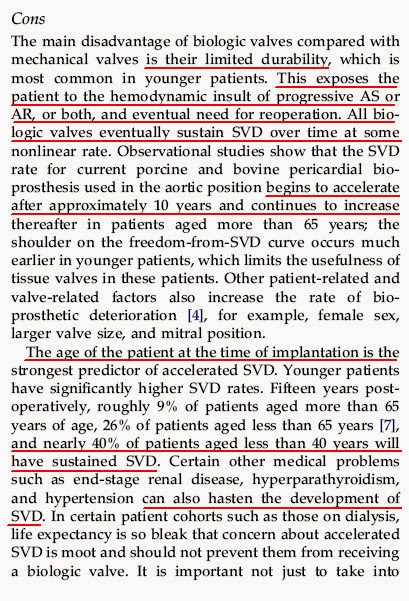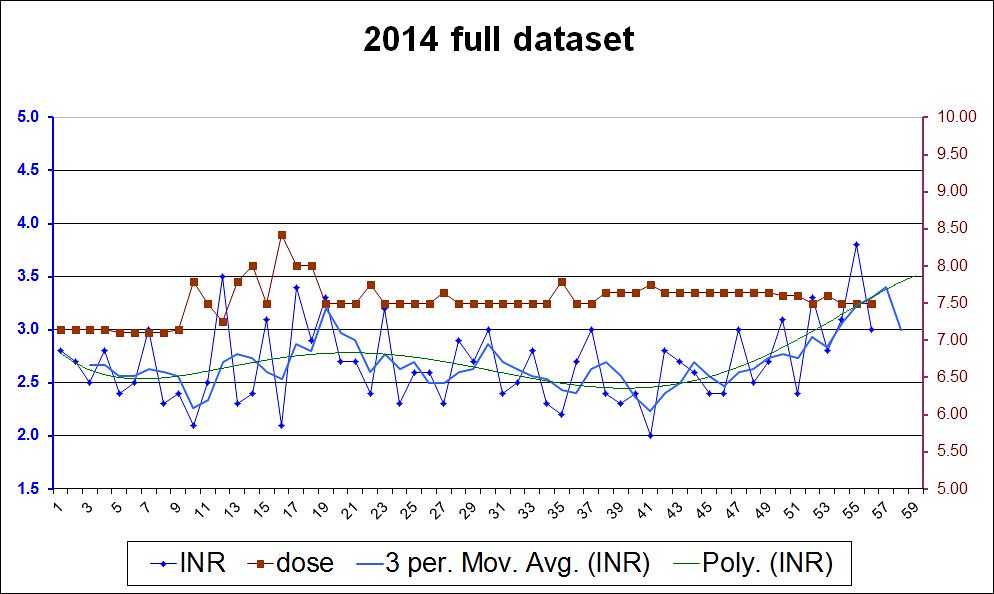Hi
Indy Tom;n855128 said:
Good afternoon AVR and aneurysm repair 4/23/15. Age 62. Good health. Otherwise healthy heart.
Tissue or mechanical?
Few questions. I realize there are no exact answers:
its good that you see that point ...
1. Are both types of valves similar in quality?
very ... if you mean manufacturing quality ...
2. Seems like every discussion is "do I want to risk having another replacement or not?". Is there another discussion to be had?
That's the main discussion as well as a side serving of "can I have a Valve in Valve replacement by TAVI if I go tissue prosthetic .. Its not however a trivial discussion as your next point identifies...
3. Coumadin seems like a drag. Is only reason to go mechanical fear of having surgery again at an older age?
you think warfarin is a drag but you'd risk another surgery? In another surgery you could have all the risks of the first (infections) and added risks of damage to the heart and surrounding nerves by accident because the scar tissue blocks the view / inhibits surgery. To me this cuts to the heart of the above question. Understanding the risks. Then there is the stress for your family ... nobody will worry around your bed side because you take a tiny pill once a day (tell me you don't now anyway) but they will worry on your next surgery.
Another point is that the tissue prosthetic does not go from perfect to fail suddenly, it fails over time with a gradual change in operation Structural Valve Degredation
This is from the latest version of guidelines for aortic valve surgery (published in 2013) titled:
Aortic Valve and Ascending Aorta Guidelines for Management and Quality Measures.
4. I know I will need both knees replaced at some point. Is risk great if I am on Coumadin at that time?
it will be something that needs to be managed that's for sure. I'd discuss it with whoever will do your knees
For what its worth I've had two "debridement" surgeries which essentially are the scraping out of infected tissue and result in more trauma than a typical surgery is intended to give. I was on warfarin for both those and I managed quite well.
5. Any real life experiences as to how long you or someone you know has had a tissue valve would be appreciated.
this whole site is filled with real life experiences ... read some of them.
My summary of things is that for someone your age that the analysis of problems vs benefits sits you at having only minor differences in which way you go. To me (as you are not 30) a tissue prosthetic will probably do you just as well ... you may get 15 ~ 20 years .... there is a small chance you may get far less (as has been written in posts here).
Best Wishes
PS: I reckon if you are stuck on choice of Tissue vs Mechanical prosthetic: flip a coin. If you find that you don't like that outcome then chances are that's telling you what your gut really wants you to do. If not, then decision made.

























